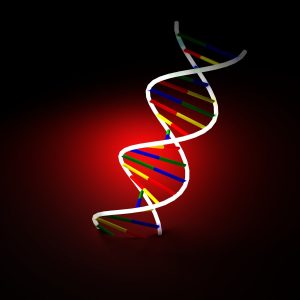 The Supreme Judicial Court affirmed the defendant’s conviction for first degree murder in Commonwealth v. Seino, despite the erroneous admission of hearsay evidence through the testimony of substitute expert witnesses.
The Supreme Judicial Court affirmed the defendant’s conviction for first degree murder in Commonwealth v. Seino, despite the erroneous admission of hearsay evidence through the testimony of substitute expert witnesses.
The background was as follows. The day before the victim was killed, “the defendant’s roommate warned [him] that he would be asked to move out [of their shared apartment] if he did not pay the total amount that he owed by the following day.” That evening, the defendant spent time at a local bar. Also at the bar was the victim, who “appeared to be drunk … and ‘flaunt[ed]’ [a large sum of cash] such that one of his friends urged him to ‘put [it] away.’” The defendant left the bar at 12:30 a.m. “The victim left the bar when it closed” at 1:00 a.m. At 1:30 a.m., the defendant gave his roommate the overdue rent money. At 7:00 a.m., “[t]he victim’s lifeless body was discovered” at an outdoor location “with contusions to his nose and the back of his head. Although his wallet was still on his person, most of the cash he had had was missing. Investigators took samples from the defendant’s clothing, including a snippet from the left front jeans pocket and a snippet from the front of the victim’s shirt, both of which had bloodstains. The DNA extracted from the jeans pocket sample was a mixture that matched the DNA profiles of both the victim and the defendant. The DNA extracted from the bloodstain on the victim’s shirt matched the profile of the defendant alone. The defendant, who testified at trial, offered weak alibi evidence.” On appeal from his convictions of first-degree murder and armed robbery, he contended that his constitutional right to confront witnesses was violated by the admission of substitute expert testimony regarding the DNA test results.
In its decision, the SJC agreed with the defendant’s argument “that it was a violation of his [Sixth Amendment] right to confront witnesses to allow [a substitute expert for the Commonwealth] to read in evidence what amounted to testimonial hearsay statements [in the autopsy report and death certificate] without the defendant having the ability to cross-examine the declarant, i.e., the medical examiner who created the documents.” The Court concluded, however, that the appeal should be denied because the error was harmless beyond a reasonable doubt, as the erroneously admitted statements, regarding “the length of the lacerations on the victim’s head and the stated cause of death,” “were of little, if any, consequence. First, the improper testimony was cumulative of [the witness’s] properly admitted [independent] opinion as to the cause of death,” based on his review of the case file. Moreover, “the statements regarding the length of the head lacerations had nothing to do with whether the defendant was the assailant.” “Finally, given the DNA evidence, … together with the evidence of motive and opportunity, … [the Court] conclude[d] that the errors did not contribute to the guilty verdicts.”
In a similar vein, the SJC opined that it was error for the Commonwealth’s expert witnesses, during direct examination, to present “charts that contained test results obtained by other, nontestifying analysts…. The charts … showed the raw data generated by the DNA tests: numbers or letters assigned to genetic locations and ‘spikes’ from an electropherogram.” The Court opined that although “it was improper for the Commonwealth to show the data the experts relied upon … during direct examination without giving the defendant an opportunity to cross-examine those who obtained the results,” “there was no substantial likelihood of a miscarriage of justice because the charts did not taint the [witnesses’] independent opinions, which … were properly admitted…. The DNA charts merely displayed genetic locations, not any information regarding a match or the statistical probability thereof.”
If you or a loved one is charged in a criminal case that involves forensic testimony, you will need an attorney to make sure improper hearsay evidence is not admitted against you at trial. Attorney Daniel Cappetta is well versed in criminal and evidentiary law and always makes sure his client’s rights and objections are protected and preserved. Call him today and put his expertise to work for you.
 Massachusetts Criminal Lawyer Blog
Massachusetts Criminal Lawyer Blog

